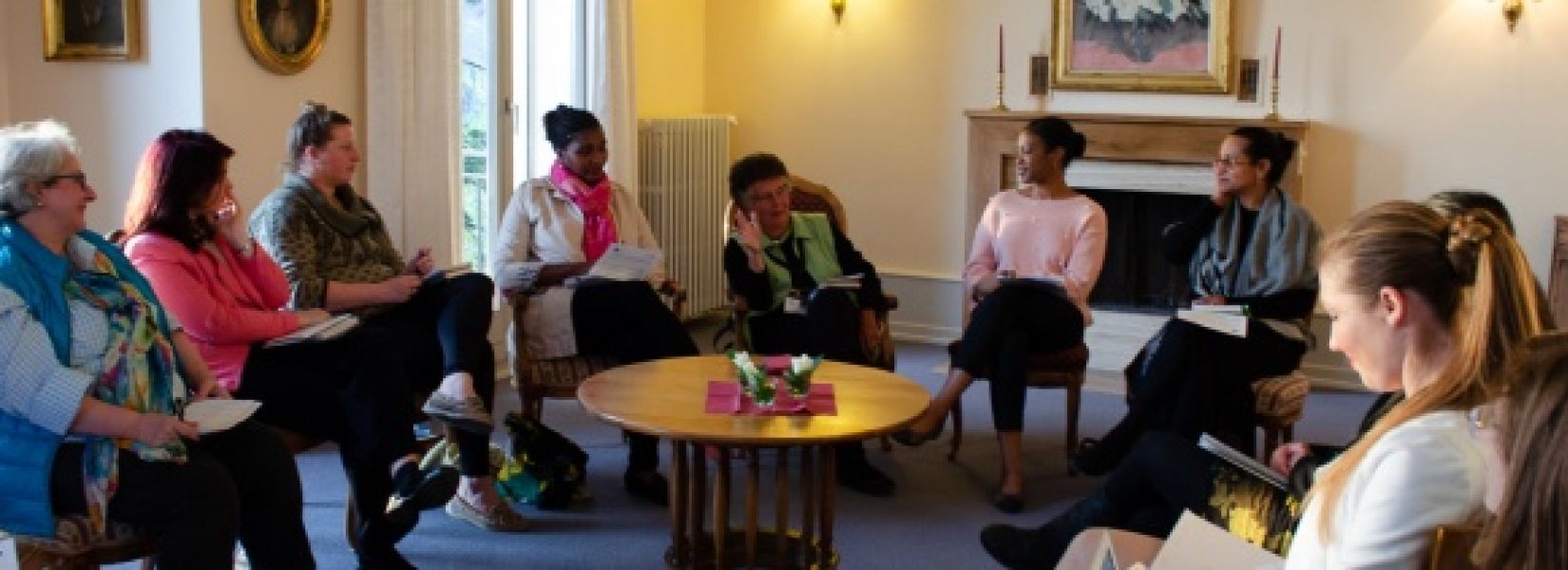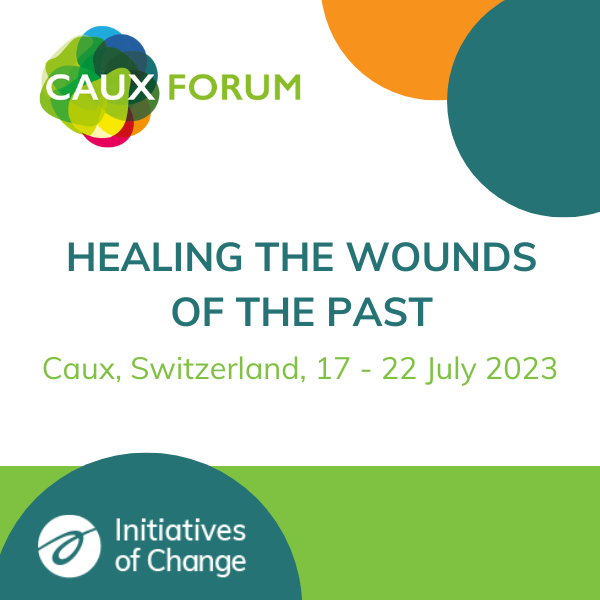Just Governance for Human Security Women’s Retreat
The Pillar Peacebuilding Approach - 26 - 29 April 2018
06/06/2018
The first women's retreat organized by the Just Governance for Human Security (JGHS) team focused on women as drivers towards positive change in their communities. Fifteen women attended the retreat, which was held in April in Caux, Switzerland.
They explored the Six Pillars of Human Security, a concept that underpins the Just Governance conference, as they relate to the United Nations Sustainable Development Goals (SDGs). Shontaye Abegaz, Managing Director of JGHS, emphasized that women are key to implementing the Six Pillars – Social Inclusion, Sustainability, Food Security, Healing Memory, Inclusive Economics and Good Governance.
The retreat format was unique to Caux. Each morning started with a quiet period for reflection, on such topics as how individual actions could bring about wider changes in communities and at global levels. Later, each discussion session focused on one of the Six Pillars, and its link to the corresponding SDGs.
At the Healing Memory session, for example, a Romanian participant spoke, with gravity and restraint, of the pernicious decrees that had forced women to have at least five children each during the Ceausescu era. Some 10,000 women lost their lives because of botched abortions. The other women encouraged her to bear witness, by writing a book on the subject.
During the Good Governance session, a Ukrainian participant spoke of the tensions she had experienced surrounding the rule of law, peace and justice in institutions in her country. A Rwandan participant gave a harrowing account of her flight when institutions collapsed during the genocide.
In the discussion on Social Inclusion, Marianne Spreng, a Swiss advisor to the JGHS team, described the current exclusion of refugees in Switzerland as ‘unchallenged, structured prejudice’. Fiona Goggins, chair and facilitator of the retreat, spoke of the stigma and exclusion of HIV-positive women in the Ivory Coast. In the face of such daunting challenges, facilitator Elizabeth Hall offered a possible solution, based on her own experience: 'How can I make this situation better – what small action could make a difference?’
What do we take down the mountain? The retreat gave women time to interact in ways that would be unlikely during the busy summer conference. They shared meals, connected with each other during the sessions, and left the retreat inspired and equipped with the tools necessary to support those who attend the July conference.
Shontaye Abegaz thanked the donors who made the retreat possible, and who are supporting the summer conference.
She also paid tribute to the quality and depth of the work done by the JGHS team and the eight UN volunteers, who are preparing the summer conference. They are also working on an e-book on the direct link between the Six Pillars and the SDGs. The e-book will be used at the summer forum and will also be available to the global community.
By Cathy Crétier, IofC Switzerland Communications Team






























